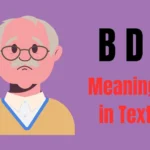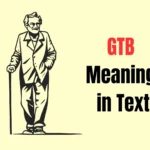The word “whether” is a small yet powerful part of the English language. People often search for whether meaning because this word appears in everyday conversations, professional writing, and formal speeches.
Understanding its meaning helps in making sentences clearer and more precise. Essentially, “whether” is a conjunction used to show choices, conditions, or uncertainty.
In modern English, it helps writers and speakers present alternatives or discuss possibilities without confusion. This guide explains every aspect of the word—from its grammatical role to real-life examples—so you can confidently use it in academic, business, or casual settings.
1. Whether as a Conjunction
“Whether” primarily functions as a subordinating conjunction. It introduces clauses showing doubt or choice between options.
2. Expressing Alternatives
Use “whether” to present two or more possibilities, such as: “I can’t decide whether to stay or leave.”
3. Indirect Questions
“Whether” introduces indirect questions when the answer is unknown: “She asked whether the train had left.”
4. Formal Writing Applications
In academic and professional writing, “whether” adds precision to statements of uncertainty or debate.
5. Legal Documents
Legal texts use “whether” to state conditional clauses clearly: “The court will decide whether the claim is valid.”
6. Business Communication
In emails or reports, “whether” clarifies decision points: “We must see whether the budget allows expansion.”
7. Scientific Research
Researchers write: “This study examines whether temperature affects plant growth,” to show an investigation of a hypothesis.
8. Conditional Sentences
“Whether” expresses conditional situations: “We will go hiking whether it rains or not.”
9. Contrast with “If”
Though similar to “if,” “whether” is preferred when presenting alternatives or doubt.
10. Everyday Conversations
Common in daily talk: “I don’t know whether I’ll join you tonight.”
11. Idiomatic Expressions
Phrases like “whether or not” emphasize certainty: “I’ll help you whether or not it’s convenient.”
12. Literary Usage
Authors use “whether” to create suspense or ambiguity in storytelling.
13. Speech Writing
In speeches, “whether” strengthens arguments: “We must consider whether our actions reflect our values.”
14. Public Policy Debates
Politicians use “whether” when discussing options for policy changes or reforms.
15. Educational Contexts
Teachers use “whether” in tests and instructions: “Explain whether photosynthesis requires sunlight.”
16. Journalistic Writing
Reporters write: “It’s unclear whether the event will proceed,” to convey uncertainty.
17. Technology and Innovation
Tech articles use it to discuss possibilities: “Engineers explore whether AI can replace manual testing.”
18. Medical Research
Doctors write: “Studies are ongoing to find whether the treatment is effective.”
19. Marketing and Advertising
Marketers debate: “We must see whether our audience prefers video or text ads.”
20. Social Media Posts
People casually post: “Not sure whether to binge-watch or sleep early.”
21. Travel and Tourism
Travel bloggers write: “Deciding whether to visit during the rainy season can be tricky.”
22. Financial Reports
Analysts say: “We will determine whether the stock will rebound this quarter.”
23. Academic Essays
Students use “whether” to introduce arguments: “This paper examines whether democracy ensures equality.”
24. Customer Service
Support teams clarify: “Check whether your order has shipped by logging in.”
25. Relationship Advice
Blogs often write: “Wondering whether to stay in a relationship is common.”
26. Parenting Discussions
Parenting forums debate: “Parents question whether screen time harms children.”
27. Sports Commentary
Commentators remark: “It’s uncertain whether the star player will return next season.”
28. Entertainment Industry
Critics write: “Viewers wonder whether the sequel will match the original.”
29. Job Interviews
Candidates ask: “I’m unsure whether to accept the first offer.”
30. Historical Writing
Historians explore: “We analyze whether ancient civilizations used similar farming methods.”
FAQs
### What is the core meaning of “whether”?
It is a conjunction used to express doubt, alternatives, or conditions.
### Can “whether” and “if” be used interchangeably?
Sometimes, but “whether” is better when presenting two options or uncertainty.
### What is an example of “whether or not”?
“I’ll join the meeting whether or not it’s raining.”
### Is “whether” formal or informal?
It is neutral—suitable for both casual and formal contexts.
### Can “whether” start a sentence?
Yes, for example: “Whether you agree or not, the decision is final.”
### Does “whether” need “or not”?
Not always. “Or not” simply adds emphasis when you want to stress both possibilities.
### How is “whether” used in academic writing?
It introduces research questions or hypotheses, e.g., “This paper examines whether X influences Y.”
Conclusion
Understanding the meaning of “whether” is vital for clear communication. It helps convey uncertainty, present choices, and structure indirect questions across all fields—from casual talk to academic research. By mastering its use, you can write and speak with greater precision, ensuring your ideas are expressed confidently and professionally.




